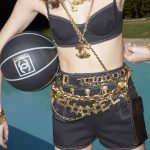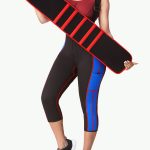When Simona Goldin, founder of lingerie startup Bandit, recently fitted a model with one of the company’s plus-size-friendly bras on a photo shoot, the woman burst into tears.
“She was 30 years old and realized in that moment she had never had a bra that actually fit,” she said. “That is a common reaction we get. A lot of women go through their entire lives thinking being uncomfortable is just the way it’s supposed to be.”
Bandit, which caters to women who wear large bra sizes, is one of a number of startups that have emerged in recent years to disrupt the lingerie industry. It joins the ranks of others working to bring bra-making into the digital age with algorithms and subscription models, including AdoreMe, ThirdLove, and True&Co, which was sold to Calvin Klein owner Phillips Van Heusen PVH, -0.72% in March.
There has been a shift in demand in recent years for more accurate sizing and a more modern experience than that of the traditional department store fitting room, according to Orit Hashay, the founder of lingerie retailer Brayola. The startup surveys women on their favorite bra and then uses an algorithm to translate the size and fit to other brands. “Technology and innovation have reshaped the bra shopping journey and experience, and the bra industry is being turned upside down,” she said.
The explosion in brands is making a dent in the industry: Women’s bras and underwear sales reached $12.4 billion in 2016, up 30% from $9.5 billion in 2009, according to industry-research group Euromonitor. Meanwhile, legacy brands have taken a hit. L Brands Inc., the parent company of Victoria’s Secret, announced the last 12 weeks of sales were $2.76 billion, down from $2.89 billion the same time last year. Analysts attributed the dip in profits in part to a shift in consumers preferring cheaper and less-padded bralettes. Victoria’s Secret did not reply to request for comment.
Companies like American Eagle Outfitters Inc. AEO, -2.00% and Urban Outfitters Inc URBN, -1.64% have done more to successfully include the style in their offerings, according to Marlene Marchewka, founder of brand consultancy Façon Consulting. She said Aerie, American Eagle’s lingerie brand, has always gone for more natural, unlined styles compared to the sexy push-up bras offered by Victoria’s Secret.
Shopping for a bra can be “stressful and intimidating,” especially for a plus-sized woman, Hachey said. With 67% of American women now considered “plus size” by industry standards, companies such as Nike and H&M that treat plus-size as the norm has received praise from women’s magazines as a result. (Victoria’s Secret has been criticized in the past for not offering sizes above XL (size 16) or DDD bra).

